Rivers and water bodies across South Africa have become too polluted for use, and the government is doing an increasingly poor job of addressing the situation, according to a long-awaited audit of the country’s wastewater.
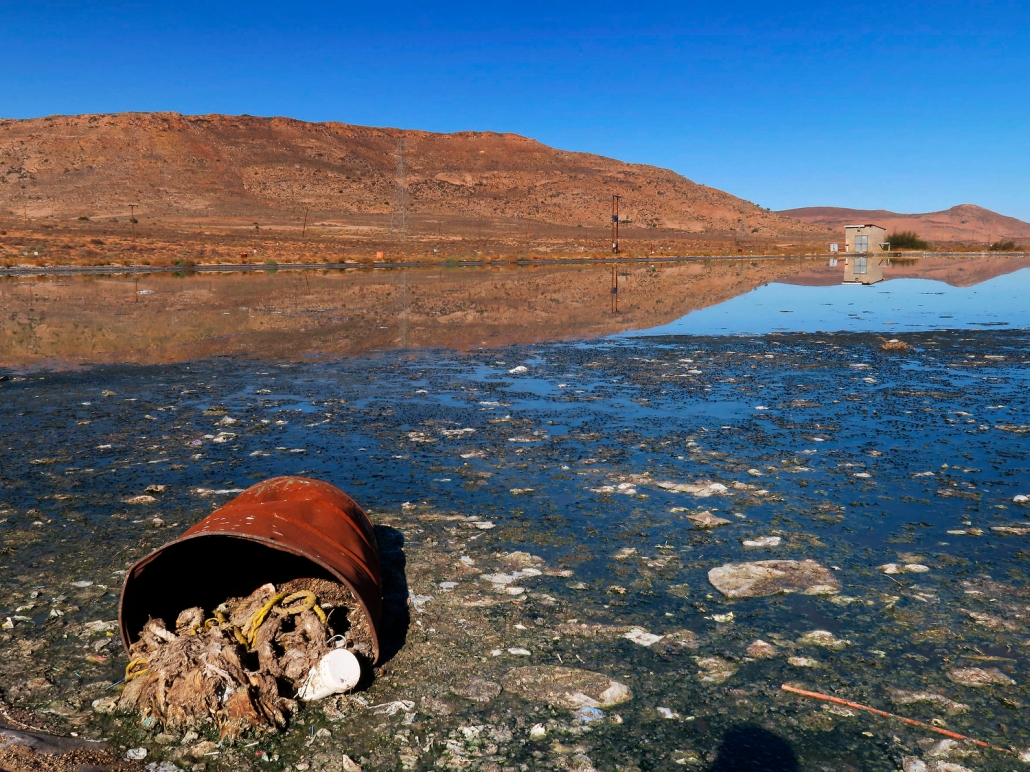
A critically failing sewage works in Springbok in the Northern Cape is one of 334 in the country which obtained a Green Drop score of 30% or less. The cause of the failure was not investigated but is typical of broader municipal service failures. Photo © Steve Kretzmann / CCIJ
By Steve Kretzmann, CCIJ — July 9, 2022
Data visualizations by Yuxi Wang
When he was 13 years old, Rudy Hanse joined the guppy development program offered by the Milnerton Canoe Club in Cape Town. There he learned how to paddle a canoe and swim.
For Hanse, the weekly outing to the Milnerton Lagoon was a way to escape the poverty and cacophony of Dunoon township, where he lived with his parents. A taxi, organized by the canoe club, would pick him and other kids up to spend a few hours on the water each week.
It wasn’t canoeing that initially attracted him, but the opportunity to escape the township.
“From the outside it was a sport to do, a way to get out,” said Hanse. “It took two to three weeks to get used to it, but after two or three months I started joining the master’s group and had to come twice a week to training.”
Later, he took up a lifeguarding course, while continuing to paddle at the club and training with other members for the grueling Berg River Canoe Marathon. After graduating high school, he applied for a lifeguarding job in Dubai. Though Hanse did not get the job, he says it led him to a different job in the hospitality industry.
As a result, Hanse was able to extract himself from the poverty and joblessness that permeates Dunoon and begin earning a decent income in guest services in the United Arab Emirates. “If it wasn’t for [that training course], I wouldn’t be where I am today,” he said.
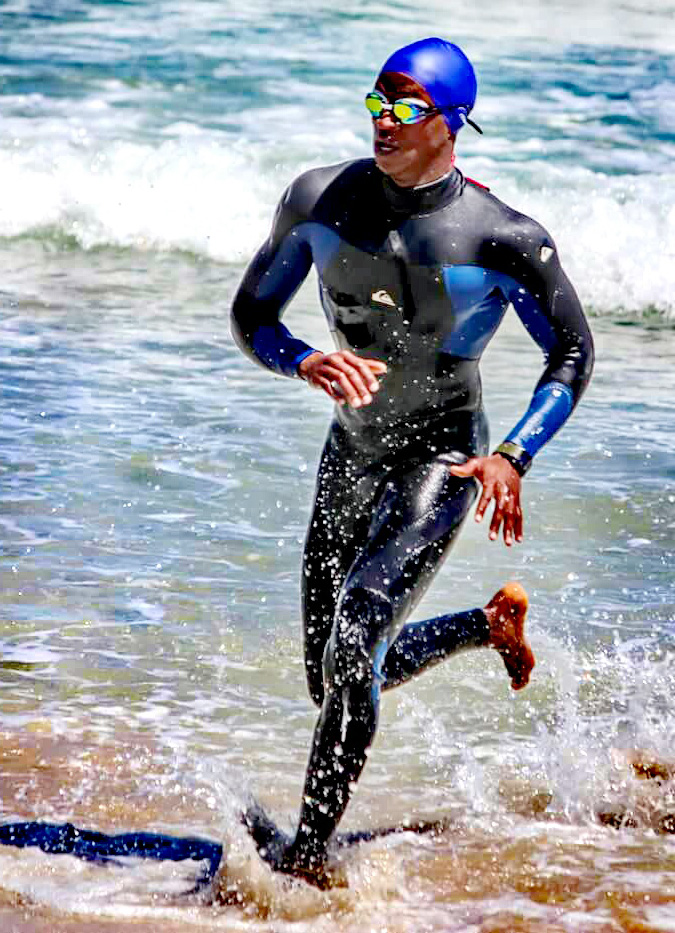
Rudy Hanse partakes in a lifeguard training at Cape TownÕs Milnerton beach in 2016, shortly before he obtained a job in Dubai, escaping the poverty of the township where he grew up. Since the deterioration of the water quality in the Milnerton Lagoon, the City of Cape Town has placed signs warning people not to swim in the water. Photo courtesy of Rudy Hanse
Griggs’ experience is hardly unusual. Following research conducted by Edda Weimann in 2013, which found Clifton Beach – a drawcard for tourists – contaminated with fecal bacteria, media reports and a public outcry over the marine outfalls led to the city commissioning its own report.
Conducted by the Council for Scientific and Industrial Research (CSIR) in 2017, it found “no immediate ecological disaster” was imminent as a result of effluent discharge from Cape Town’s marine outfalls. But the report stated that there was “indirect evidence from faecal indicator bacteria counts in seawater samples collected at many sites along the Cape Town shoreline over an extended period that effluent is possibly, even if infrequently, reaching the shoreline.”
The CSIR report noted that although sewage outfalls are common in coastal cities around the world, “the world cannot use the marine environment as a waste receptacle in perpetuity and opportunities for improved and economically and environmentally feasible wastewater treatment, and the feasibility of using alternate strategies for disposing of wastewater to the marine environment should be investigated by the City of Cape Town [and other municipalities].”
The city has stated it has no plans to divert wastewater disposed via the marine outfalls to wastewater treatment works, but it also will not increase the outfalls’ capacity. “Purpose designed marine outfalls were and still are extensively used by coastal cities the world over, and they are still considered an acceptable means of wastewater disposal,” stated City of Cape Town mayoral committee member for water and sanitation, Zahid Badroodien.
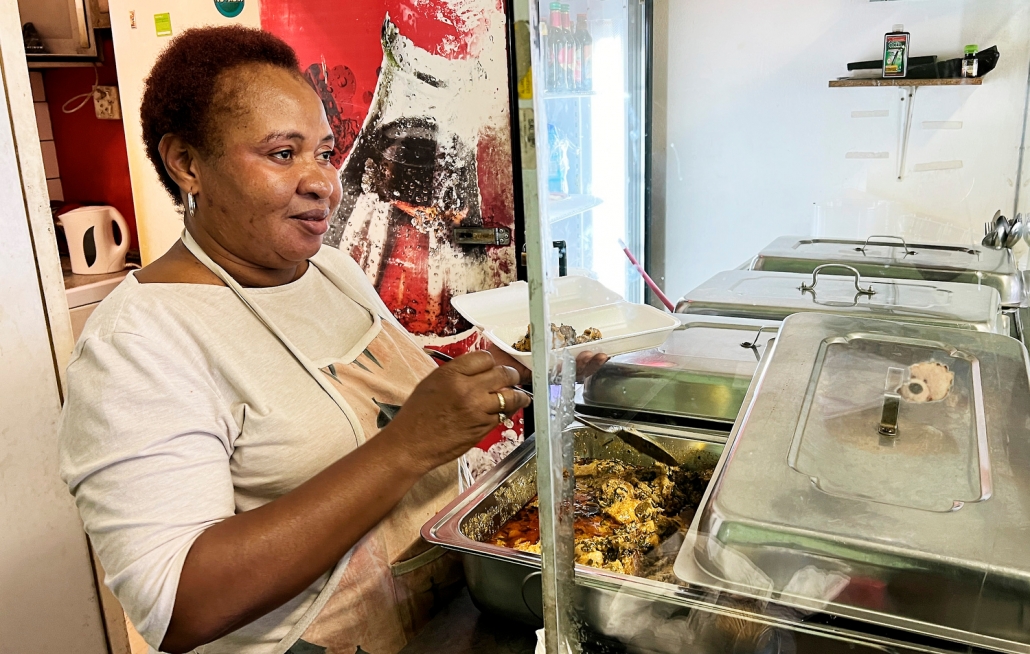
Abibat Lamidi buys catfish caught in the Black River to make a traditional pepper stew for her Nigerian customers. She says the fish from the river smell like petrol, but the strong spices that the dish calls for helps to disguise it. Photo © Peter Luhanga / CCIJ
“The compounds contained in some of these dumped products cause feminization and lower the quality of sperm. They can also lead to sexual abnormalities and reproductive impairments in both sea life and humans, as well as caus[e] persistent antibiotic resistance and endocrine disruption,” states Petrik.
As more research emerges on the deleterious effects of using these polluted bodies of water, locals and tourists are left wondering if they’ll ever be able to enjoy South Africa’s beaches again.
As Griggs concluded in her note to the City of Cape Town, “Unless the Cape Town authorities can do something about this problem, we fear that not only will you despoil this beautiful coast, but you will also lose tourists who will be as disgusted with the state of the beaches as we sadly are.”

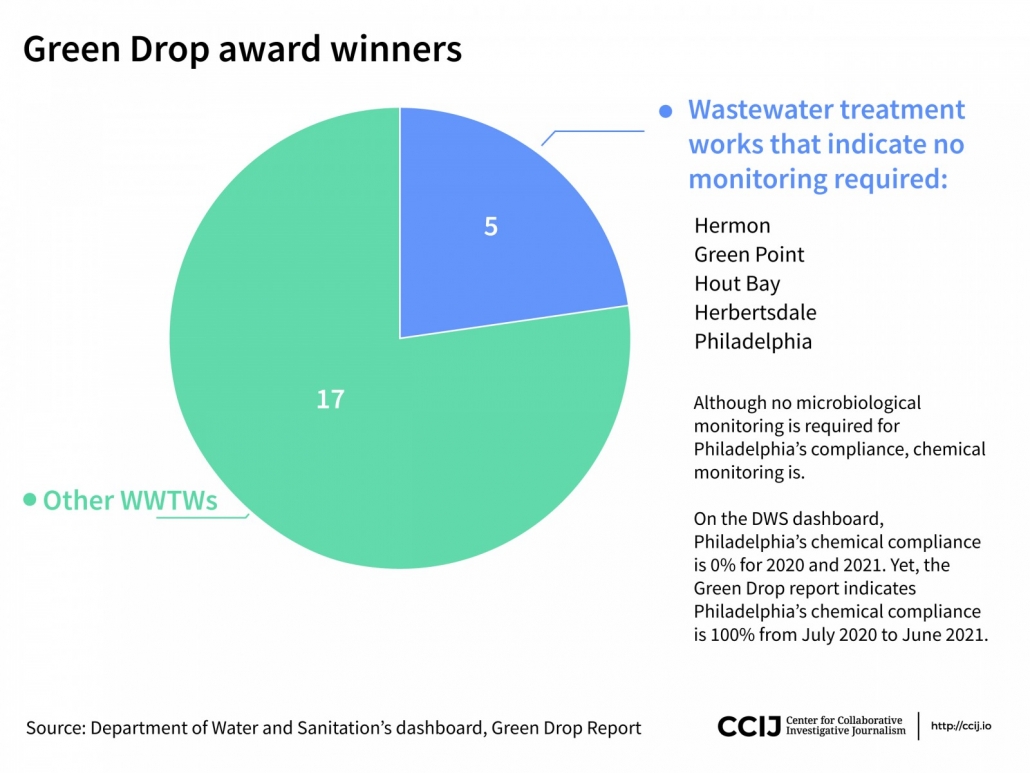
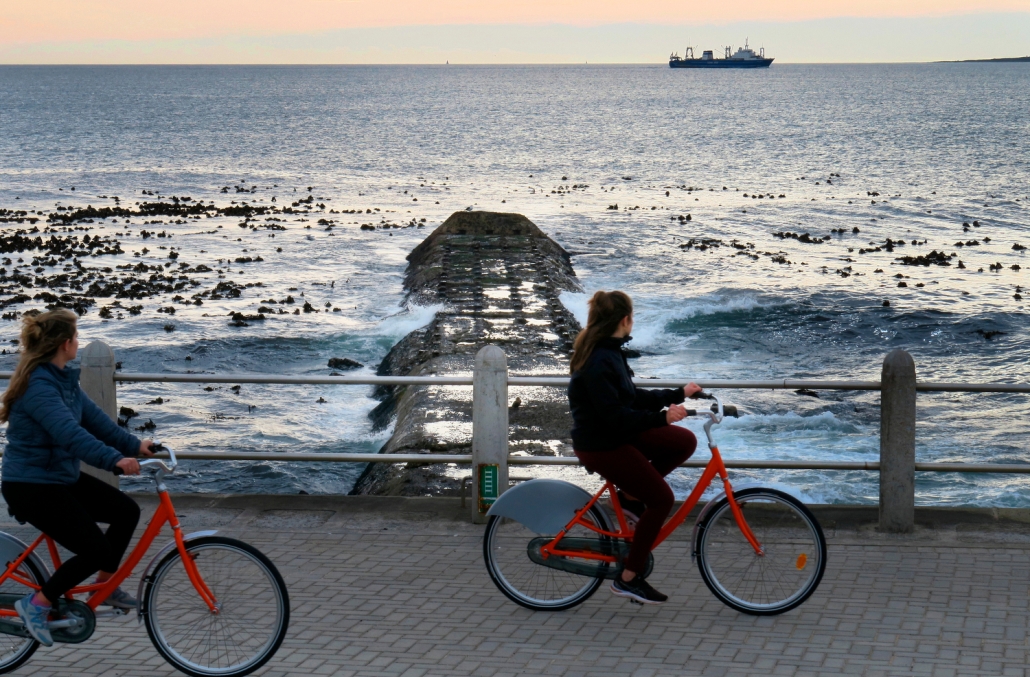
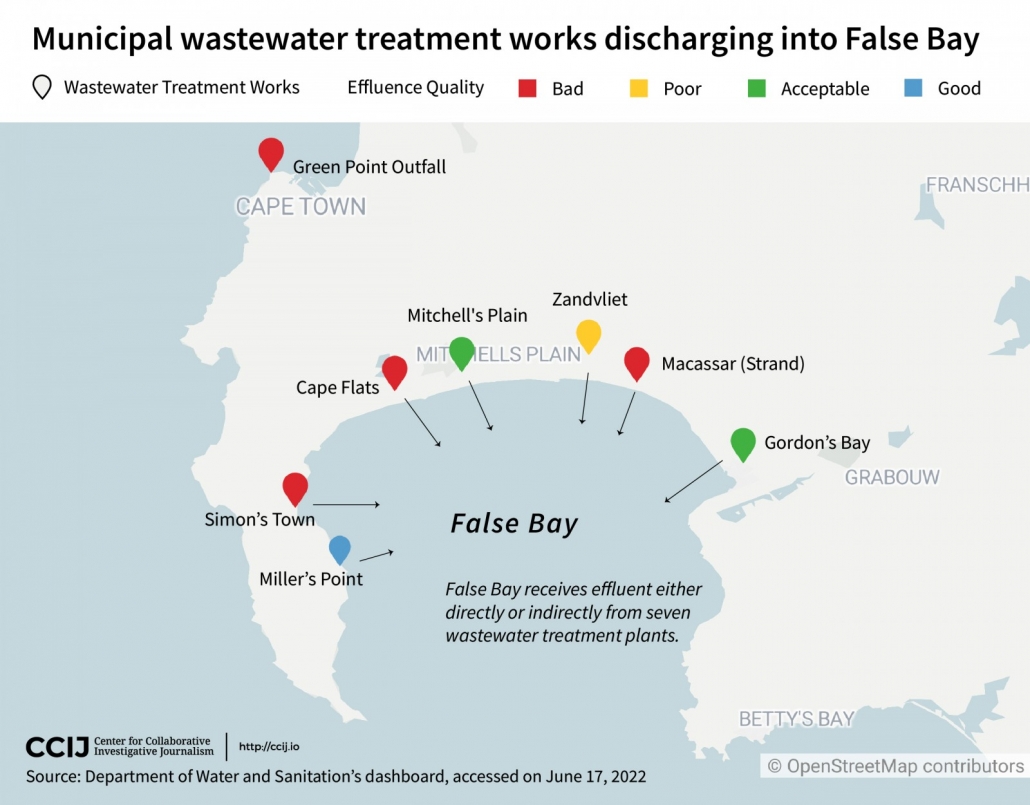
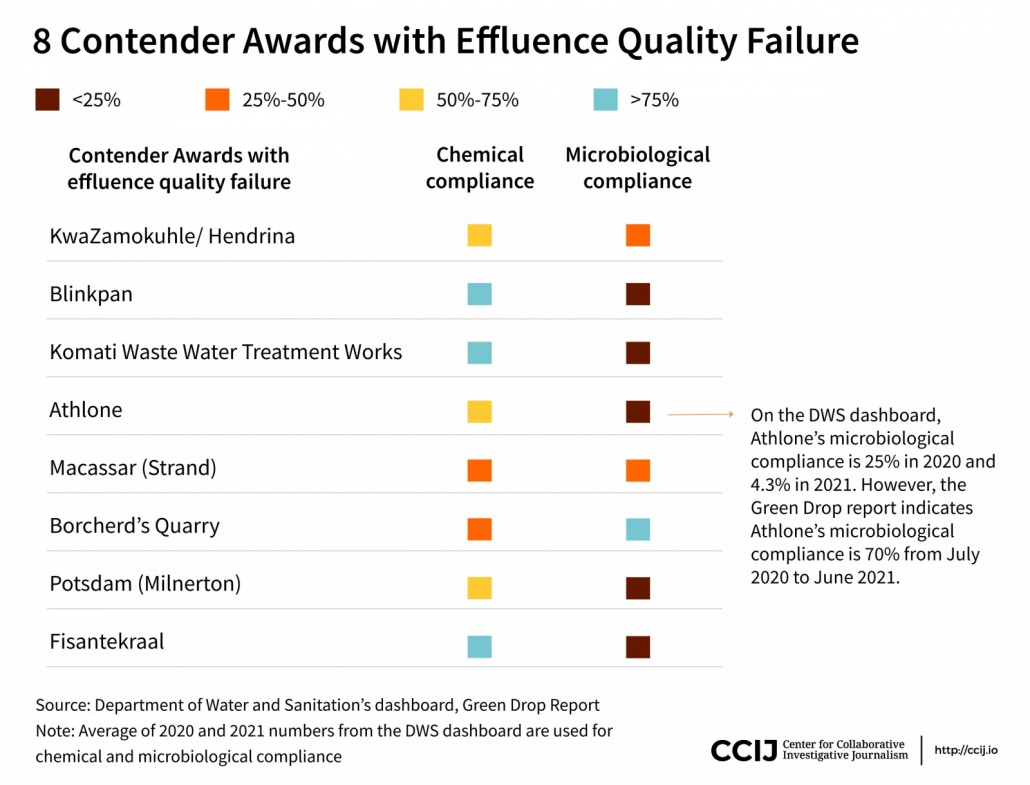
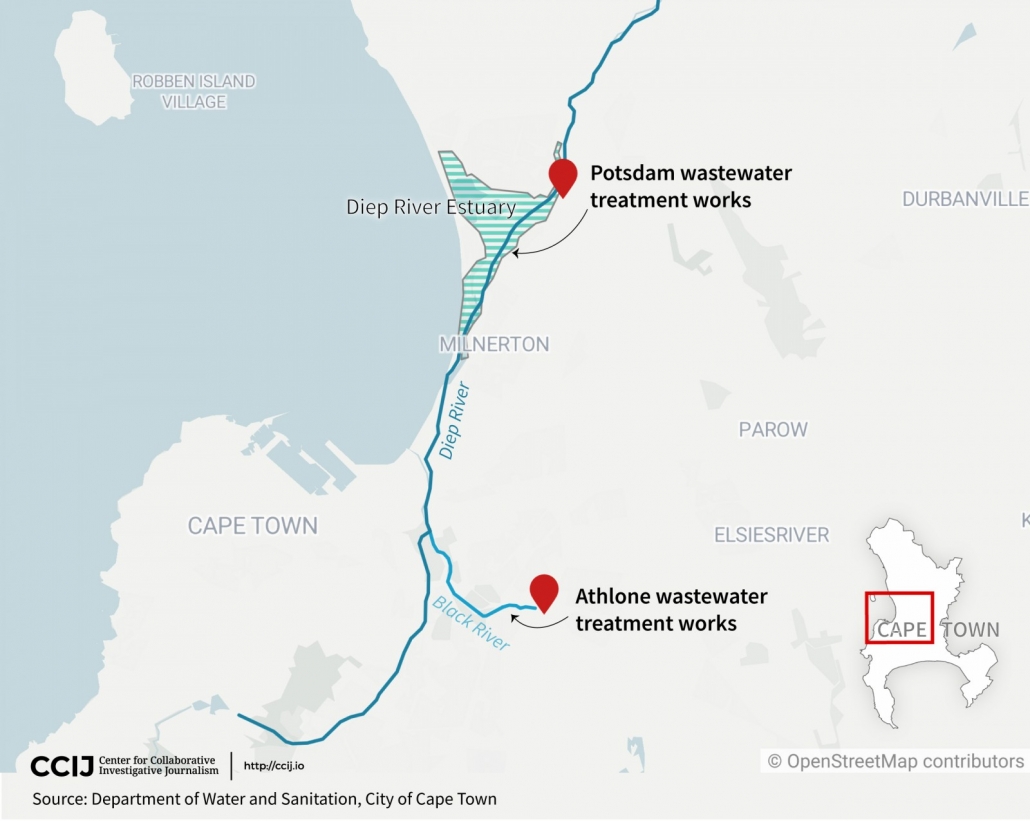
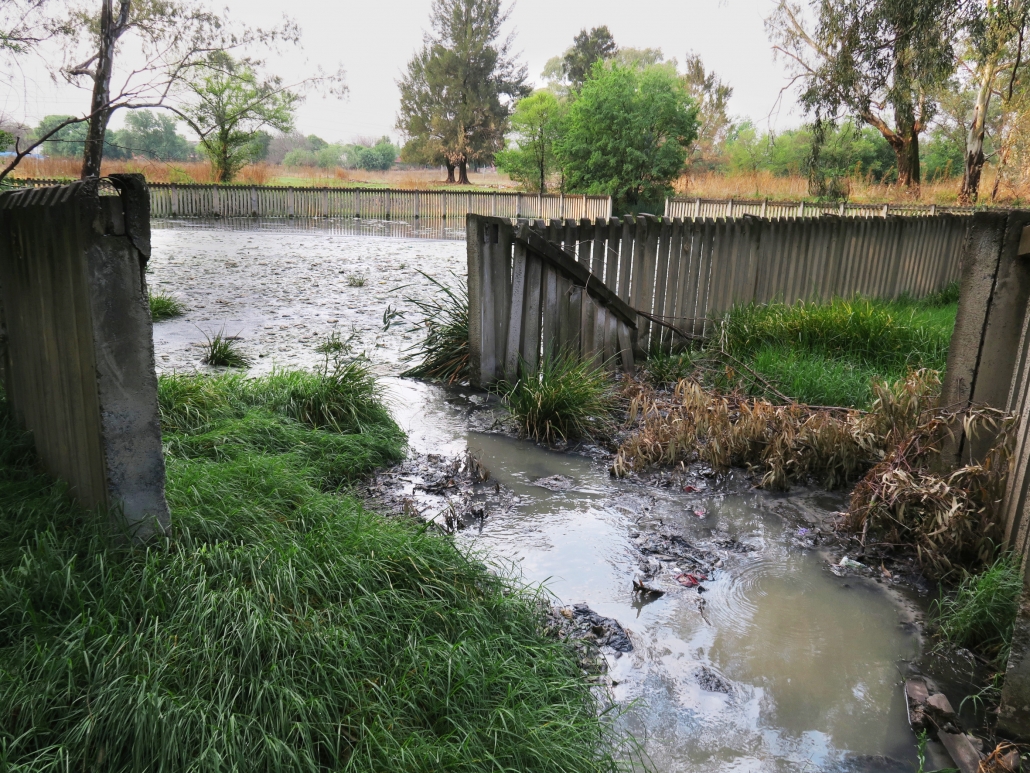



 © J. Carl Ganter / Circle of Blue
© J. Carl Ganter / Circle of Blue